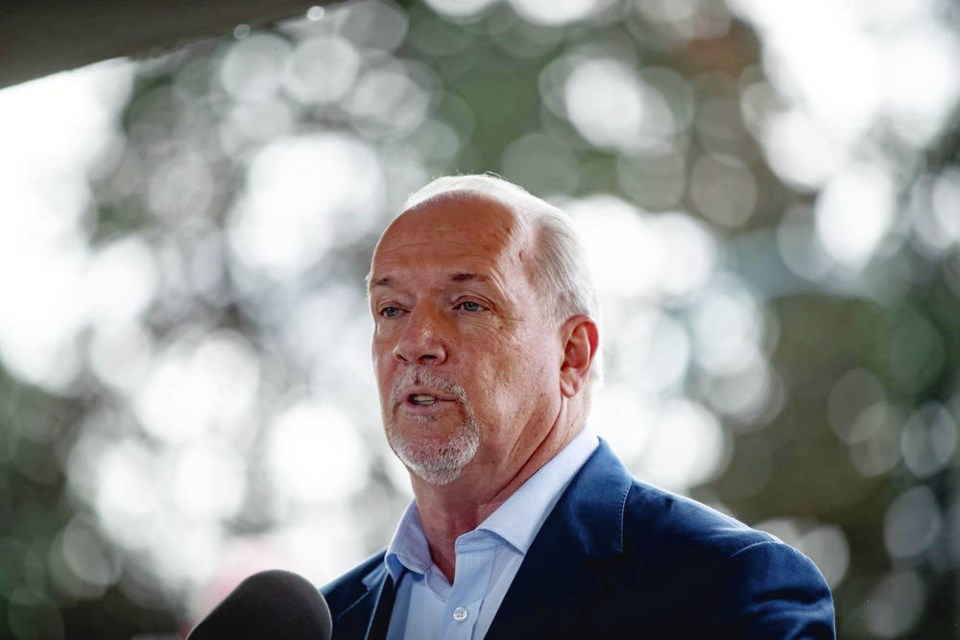Premier John Horgan has been accused of opportunism in the way he broke his word by calling an election a year earlier than scheduled — and some of his supporters have risen to his defence, saying that any politician with Horgan’s level of popularity would have done the same thing.
That might be true — and we are sure that Horgan, a student of history, would be able to think of times when the plan worked.
W.A.C. Bennett called elections every three years, and that worked out for his Social Credit colleagues in 1963, 1966 and 1969, but not quite so well in 1972.) The winner that year was Dave Barrett of the NDP, who called another election less than three and a half years later.
Ooops.
Horgan might not remember Ontario, back in the summer of 1990.
If history has lessons, this is a big one, so we will remind him.
David Peterson, the Liberal premier, was hugely popular. Holding a commanding majority in the legislature, there was no chance that the opposition parties could bring him down.
The Liberals had 95 seats, after all, and between them, the New Democrats and the Progressive Conservatives held just 35.
Peterson called an election, even though he was just three years into his five-year term.
There are few things more attractive to a politician, after all, than the chance to lock in their hold on power. It’s irresistable, and as Peterson surely thought, what could go wrong?
The theory was that voters have short memories. The theory was that after a few days, they would forget that Peterson had called an election for no reason that could be uttered with a straight face.
But Peterson was wrong, as were the strategists and advisers in his self-serving, cynical little bubble.
The voters did not forget.
They took their anger with them to the polling stations, and ensured that Peterson learned his lesson.
The New Democrats went from 19 seats to 74, and Bob Rae became, much to his shock, the premier of the largest province in Canada.
The Rae government was the first NDP one east of Manitoba. Peterson lost his own seat in London.
The NDP won the popular vote as well as the seat count, so the first-past-the-post system could not be blamed by the Liberals for their defeat. No — they only had their own greed to blame.
Of course, British Columbia in 2020 is not Ontario in 1990.
The New Democrats here are gambling that they can get a majority in the legislature, while Peterson was gambling on an extension.
Ontario in 1990 was entering a recession; we would be gleeful at the thought that the 2020 downturn that could be called a recession. Our economy is in the proverbial toilet.
It’s impossible to make other solid comparisons between the two elections, but it is safe to say that Ontario in 1990 offers a strong hint that this election is not a sure thing for Horgan.
In a couple of months, or whenever they finish counting the mail-in ballots, we will know if he is a big winner or a total failure.
Besides, remember 2013? The year when everyone knew that Premier Christy Clark was going to be badly defeated by NDP leader Adrian Dix?
Most of the polls confirmed it, so what could possibly go wrong for the New Democrats? They found out.
Horgan took a major risk when he called this election. It would be wise to assume nothing about the final result.
How will voters, who have put up with six months of misery due to the pandemic, react to Horgan’s grab for more power, his attempt to take advantage of a bad situation?
We will know soon enough.



